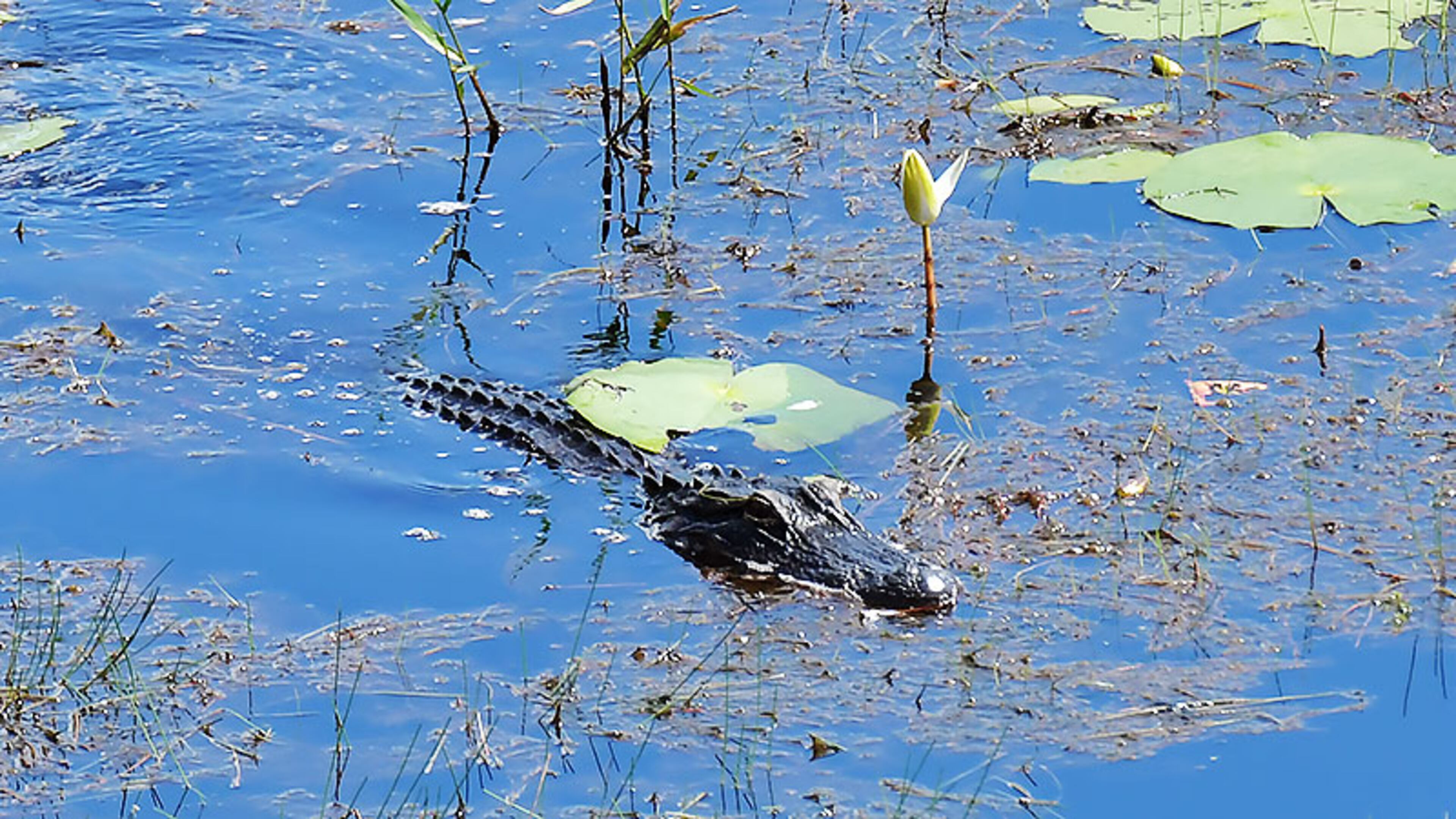Mining company withdraws permit application for project near Okefenokee

Twin Pines Minerals, the Alabama-based company that hopes to mine acres of land near the Okefenokee National Wildlife Refuge, has withdrawn its permit application, said Billy E. Birdwell, spokesman of the U.S. Army Corps of Engineers for the Savannah district.
The company filed notice with regulators late Friday but could resubmit the application at any time with new information, Birdwell said.
“As part of the permitting process, it is not unusual for an applicant to withdraw a permit. It doesn’t happen every day or week but it happens often enough that we consider it a routine action,” he said. “When that happens, we stop what we are doing. The applicant has every right to come back later and resubmit new information to work on or pick up where they left off.”
In July, Twin Pines applied for a permit to extract titanium and zirconium through mining along 2,400 acres of Trail Ridge located a few miles from the Okefenokee Refuge. The mining project would ultimately have extended to 12,000 acres near the Charlton County attraction.
The Charlton County Commission voted unanimously to support the mining proposal in August. During the period for public comment, the Army Corps of Engineers, the agency charged with reviewing the permit application, received more than 22,000 letters.
Several agencies, including the Georgia Conservancy, the Southern Environmental Law Center, the Environmental Protection Agency and the state Environmental Protection Division, expressed concerns that the application did not include enough information about the potential impacts to the water levels underground. Some of the organizations called for an Environmental Impact Statement, the highest level of analysis available for a proposed federal action that may impact the environment.
“In an effort to be even more conservative in our approach than we were in our initial application, we have agreed with the U.S. Army Corps of Engineers to reduce the size of the permit area and resubmit new documentation for further review and evaluation as soon as possible. We are in the process of developing the information to be included in the revised application and still intend to seek approval to move forward with the mining project in an environmentally responsible way and to providing good paying jobs for the people of Charlton County,” said Steve Ingle, president of Twin Pines Minerals.
>> READ MORE| Mining proposal raises concerns about future of Okefenokee Swamp
“I’m glad they have taken a step back from this. It needs to be carefully evaluated because Okefenokee is a precious resource,” said state Sen. William Ligon, R-Brunswick. The senator had expressed concerns about the project in a letter to the Corps late last month.
Environmental advocates said the application withdrawal is just another example of how poorly the process has gone.
“This is further evidence that we are dealing with a flawed process. If Twin Pines had faith in their own project and its safeguards, they would not be going to such extreme lengths to avoid an Environmental Impact Statement,” said Alex Kearns of St. Marys EarthKeepers.
Twin Pines withdrew the permit application not long after releasing the results of a more than yearlong study to determine if the mining plan will harm the swamp.
The research, conducted by Robert Holt, a hydrologist and professor from the University of Mississippi, was submitted to the U.S. Army Corps of Engineers and the Georgia Environmental Protection Division in January.
Based on Holt’s findings, the proposed mining activities “will have negligible impact on the hydrologic system of Trail Ridge and the Okefenokee Swamp.”
Environmental advocates and government agencies had been waiting months for the water studies to be provided by Twin Pines.
"We are currently reviewing the findings, but we’re not surprised that a report commissioned by Twin Pines supports its own conclusions and contradicts the findings of multiple government agencies that this mine is likely to permanently damage the Okefenokee,” said Christian Hunt, Southeast representative for Defenders of Wildlife. “The truth is that we will never know the true costs of mining until after the damage is done. This project cannot move forward."
>> READ MORE| Mining project could cause 'unacceptable' impact to Okefenokee says EPA

Representatives of Twin Pines said last fall they were working on a hydrology report and a groundwater flow model that would simulate what happens to water flow both during and after mining. The 91-page report documenting their findings is posted on the company website. It concludes that the mining operations would not significantly impact the groundwater and stream flow to the Okefenokee Swamp or the creeks and groundwater system to the east of Trail Ridge, nor would the operations reduce the water level of the swamp.
Twin Pines said the findings, when presented to peers at the University of Georgia and the University of Alabama, were “well-received.” But Todd Rasmussen, Professor of Hydrology and Water Resources at the University of Georgia who reviewed the study and shared it with other modelers, said some of the prediction methods used in the study created large uncertainties in the data.
“The general consensus is that a rigorous review is needed. But from first impressions, there are many components that are unclear, incomplete, or lacking,” Rasmussen said. “While the final result may be that there is no impact, the provided report does not provide clear and convincing evidence to that effect.”



